From The Titanic To Trayvon Martin: A Historical Insight Into The Slave Narrative
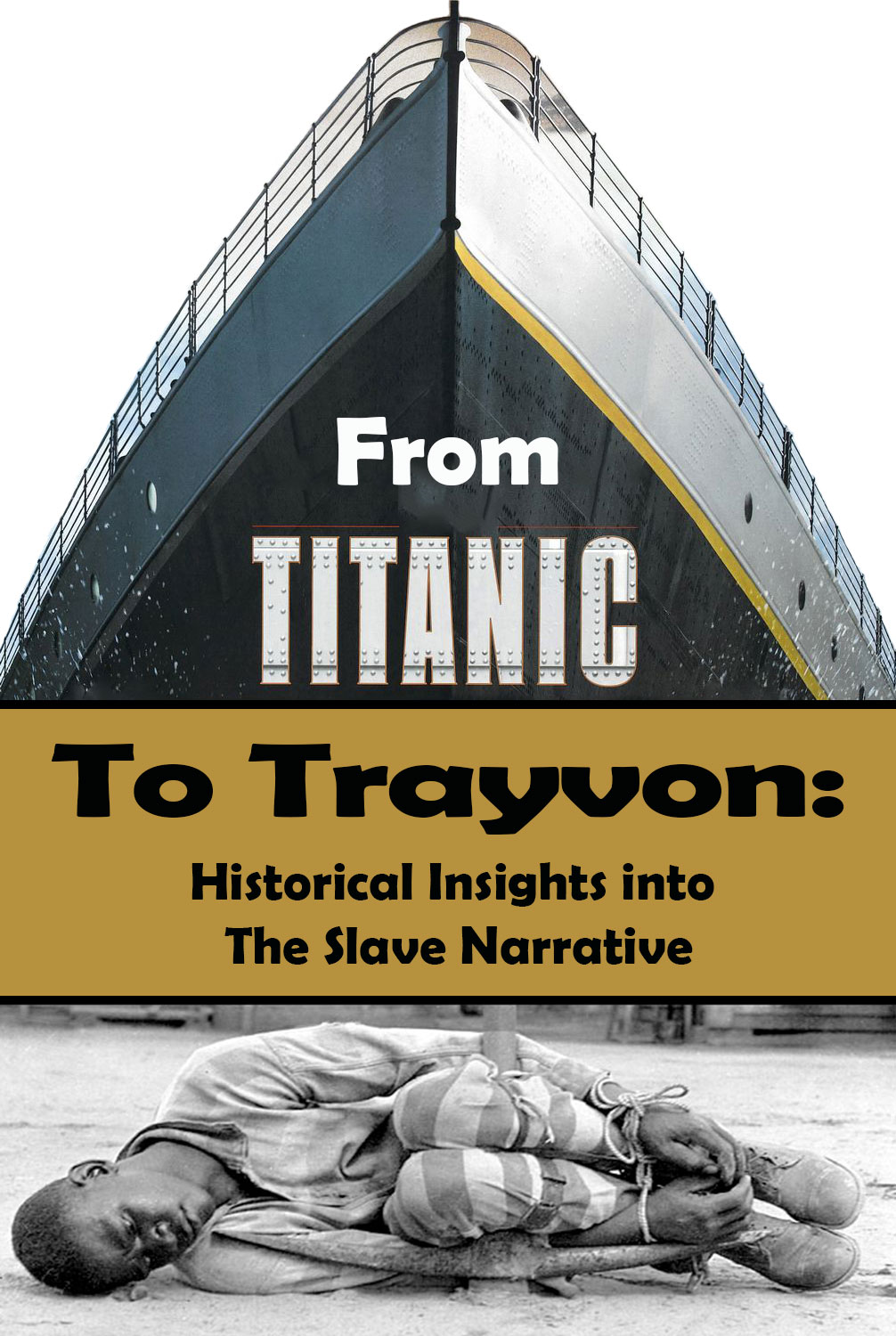
Genocidal Graffiti
Shawdy, the Black Man, the Original Man, is living in our last days. It’s tight on us right now, no one cares about us, our women have abandoned us for Progress and our kids are raised by the State. As 2pac relates, we’re living in this White Man’s World. My brother, you better watch yourself, the writing's on the wall and it's not paint, but our blood. Beware of the Genocidal Graffiti Artists!
- Unknown
Introduction
From the bowels of bigotry, the stench of a soul stained, and the waters of wickedness, we begin this faithful journey in haste.
And in haste, we reluctantly honor the debt we’ve paid from the wrong choice.
Now looking back, I wonder, where did we go wrong?
And again I question, did we make the right choice?
Did we make up our minds too soon?
The fatal shooting of Trayvon Martin in Sanford, Florida is riveting, shocking, and pushes us to question the state of American Affairs in 2012.
Did we make the right choice?
On a normal night in Sanford Florida, Trayvon was walking home to a gated community when George Zimmerman watched him, followed him, judged him, and then shot him.
Trayvon left home weaponless and never returned home.
Lifeless.
Like the voyage of the Titanic, many Black Men are familiar with Trayvon’s Story.
History claims the Titanic was doomed and many Black Men feel the same way, no matter where you turn, no matter where you go, no matter what you try, DEATH comes swiftly to us.
And I cringe to ask the question again, did we make the right choice?
There are times in our lives when some things are done for an exclusive Goodness and somehow, the intrinsic value of that exclusive goodness becomes a universal goodness, making it an inclusive goodness for the world.
The movie Titanic has achieved that special niche, that special touch, it captured the essence of the 20th century.
But there’s another movie, movement if you will, etching its face like Genocidal Graffiti on the walls of Black Men.
They say the Titanic was destined to crash and many people think Black Men are destined to be hunted down, maimed, shot, and sacrificed to spill more blood for the Genocidal Graffiti Artists.
Whether we speak of The Titanic or Trayvon, we must trace our problems back to the roots, back to the beginning.
Can we accept The Titanic is more than a ship, more than a legend, more than an archetype, and more than something that happened?
If The Titanic is an intellectual and spiritual voyage of our souls to understand why, then we must question where we are now.
Are Black Men becoming an Endangered Species, destined to sink in the oceans of American Racism for crimes we didn’t commit?
This is my attempt to make sense of the situation, to make sense of the wrong choice, to stop us from sailing on The Titanic.
We know there are lessons to be learned in life. Because Art imitates life, there are also lessons to be learned from Art. However, we must discover and use these truths to uplift and advance humanity.
This will be the the first and only book to tell the world why the Titanic was a blockbuster, tie its universal symbols in with historical and world-renowned literature, and express its truth in the context of a Slave Narrative.
My mission is to steady the course for Black Men through the uncharted waters of Racism.
Now, come along with me as we board The Titanic and answer that nagging question, did we make the wrong choice?
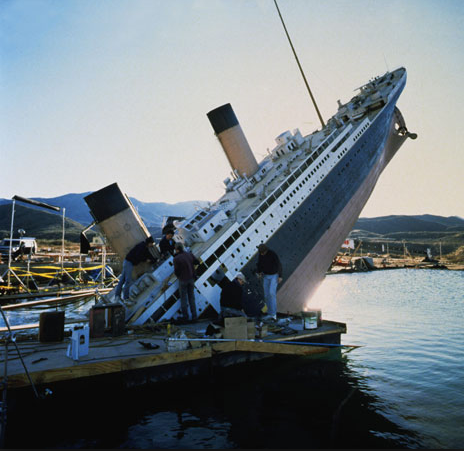
Checkpoint One: Titanic as Symbol
Welcome aboard brave souls!
I assume you’ve seen the film.
If you haven’t, then you must.
No matter what any of your relatives and friends tell you about it, it’s better than that.
Trust me.
Before we set sail, I have a little story about the importance of vision.
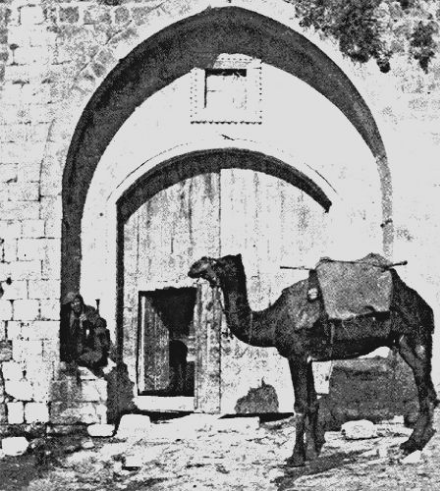
The Importance of Vision
It is easier for a camel to go through the eye of a needle than it is for a rich man to enter the kingdom of heaven.
In our Western World, this biblical verse has destroyed our society internally, deep inside our souls.
We hear this biblical verse and interpret it as saying that we should not be rich, but I say this is not so!
It’s every person’s right to prosper because this verse has not been misinterpreted, we just didn’t know.
Actually, the verse is an excellent example of our plight as human beings.
The eye of the needle in this example is not the small needles that we use to sew, but it is an entrance to one of the cities in the Eastern World and the only way a camel can enter the city through this entrance is to get down on its knees.
Therefore, this symbolizes a rich man must get down on his knees to retain his humility and to pray (further symbolizing
his knowledge of God and his faith).
What a vivid and wondrous symbol for how money corrupts our humanity and destroys our innate capacity for humility!
It is this theme that gives the Titanic its power and magic.
Enough said, let our journey commence!
This book analyzes the film’s themes and explores its cinematic qualities, but it has a deeper meaning.
The Titanic is a great story for historical reasons, but we must move forward with progress and learn from our past.
I understand that unless we know our history, we are doomed to repeat it, but living in our history has become a safety feature.
We can say it won’t happen again, but the Zimmerman incident proves other wise.
If we never attempt progression, we won’t make any mistakes. I don’t care how much history we know, we’re going to make mistakes - that’s a part of our humanity.
We must remember that “great experience comes from bad judgment and great judgment comes from bad experience.”
Therefore, we must focus on our similarities (the things that connect us) as humans and not on our differences (the things that separate us).
If you can’t think of or do anything positive, my fellow passengers, just look around you.
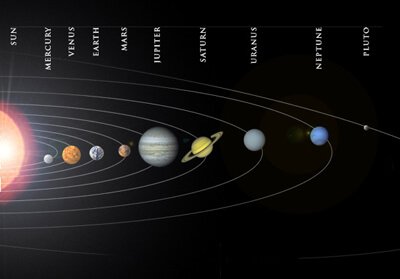
The Truth is Everywhere
The truth is everywhere: in the cosmos, in Nature, in human beings, and in the Black Man’s Experience.
We must seek out our place and purpose and do our jobs.
Everything and everyone has a purpose and place in the universe.
If we were a planet, then we would have a purpose and it would be our orbit.
When we seek to impose on other orbits, we experience the lower depths of our humanity aptly named racism, prejudice, slavery, caste systems, class, communism, etc.
All the planets have orbits and the creator didn’t put them too close together because they would “bump heads.”
I know I got carried away, but the film has the same effect.
We get so caught up in the love story that we forget about the tragedy of the ship until we see the iceberg.
Thus, Titanic is not only an analysis of the tragedy, but it is an analysis of our humanness.
The maternal atmosphere provides the film with an alternate view of slavery and freedom from the standpoint of those enslaved.
It also shows their continued efforts to abolish slavery’s ideologies, ties, and notions of grandeur for one race above and beyond another race.
Now that we’ve touched on symbols, let’s discuss the power of symbols and archetypes in the film.
The Titanic symbolizes our ride to our own deaths, this slow sinking, it is like sin because it’s not instantaneous, and like the Book advocates, the wages of sin is death.
The last time God destroyed the world was by water and this time humankind has destroyed itself by water (in the movie).
Supposedly the best people (the rich), are saved and this implies they are the chosen.
The significance of the higher classes being saved shows humankind’s rebellion against God, against Nature, and against Divine Law.
Jack Dawson symbolizes Christ because he saves Rose DeWitt Bukater and he gives her a second chance (hence he’s a savior) and not only that, he sacrifices himself for her, and she is “born again.”
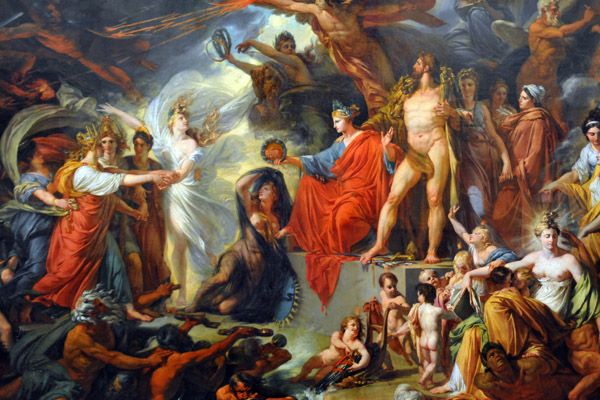
The Greek Titans
Now, let’s take a look at the Greek Titans. The Titans, The original Greek gods, are commonly called the Elder gods.
According to legend, they all went to the ocean when they died.
As a result, it seems a curse was placed on the Titanic by its name and sealed its fate before it ever set sail.
If you really want to GO THERE, we can see The Titans as the Kemetic Culture and the Whites came long and destroyed our heritage and then drove us from our lands “out to sea.”
At least, that’s one interpretation. Now, back to the story.
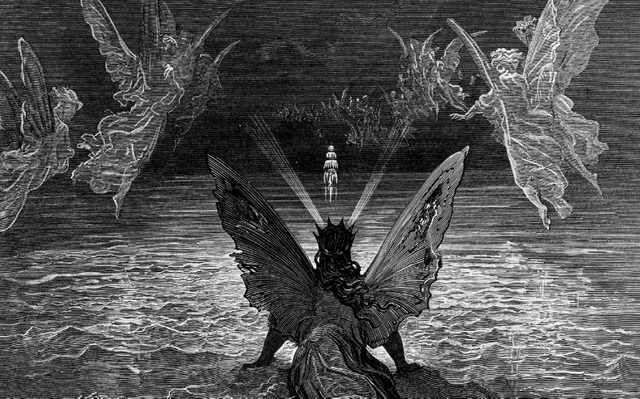
The Ancient Mariner
The ship also symbolizes literature - following is a summary of how Rose is like the “Ancient Mariner.” Like the salt of the ocean water, slavery had baked itself onto her actions, thoughts, and personality.
It is this concept of “Rime” that was written years ago in the “Rime of the Ancient Mariner” by Samuel Coleridge. As in the poem, Rose seeks to end her damnation.
The Ancient Mariner’s curse is to wander the world, telling his accursed tale to any soul that will listen.
The Ancient Mariner sailed out to sea with 200 men and they were followed by an albatross.
The albatross was a symbol for the dark and evil side of prophetic vision, but the sailors assumed it was a good sign.
The Ancient Mariner killed the albatross and the ship was taken by a gust of wind to a sea of black waters where they encounter the boat of Death.
All the men die upon sight of a ghastly female figure on the boat of Death and the Ancient Mariner is left, it seems, to die at sea.
Suddenly, all the men come back to life, but they never speak, like the undead, and they sail the ship.
They never speak to the Ancient Mariner, but their eyes remain focused on him.
When the Ancient Mariner reaches land, he runs to a wedding and relates his tale to one of the guests.
As the tale is told, the ghastly tale moves the listener and he becomes “a sadder, but wiser man.”
It is the same condition with Rose.
The hold of slavery has baked her beyond her senses and she seeks to find life through death by jumping off the ship.
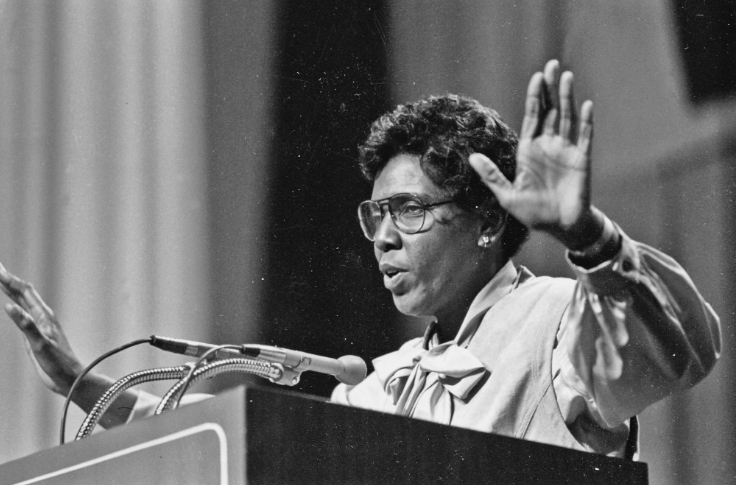
Visionaries
This book is about vision - the driving passion in every human for progression.
Thucydidies says that “the bravest are surely those who have clearest vision of what is before them, glory and danger alike, and yet notwithstanding go out to meet it.”
Where would African-Americans be without these visionaries: Imhotep, Harriet Tubman, Chiek Anta Diop, Nat Turner, Harriet Jacobs, Bethune Cookman, Barbara Jordan, and Malcolm X?
Everything around us (hoodies, smartphones, tablets, etc.) started with a person’s vision.
Finally, Titanic is about change - changing our vision from individualistic to humanistic, from trying to progress individually to trying to help humanity as a whole.
How will we accomplish this?
Through LOVE.
Love is universal and it’s everywhere: in the cosmos, in Nature, and in humanity.
But for some reason, I can’t shake the feeling that it’s been cast out, it’s been conveniently bottled on the wrong side of town.
The side of town Trayvon walked down, the side of town where people murder teenagers for the Community Watch Program.
And still I have to ask, did we make the wrong choice?
For example, love can be compared to a marker.
When we take the top off a marker and use it, it’s like experiencing love.
When our hearts are broken, we take the top off and claim we’ll never love again.
However, when love does find us again, how can we experience it?
Just like the marker doesn’t work because it has “dried out,” so too are our hearts when we’ve been hurt.
We must open up, my passengers, and experience the joys that love has to offer us.
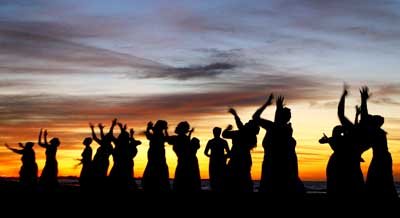
Conclusion
We’ll be sailing some rough waters (everyone’s different), but we must understand our differences if we are to reach Freedom.
My fellow passengers, we have reached the second checkpoint on our voyage to freedom.
Now, can you please bow your heads for a few moments as we honor those who have died or been sacrificed to Racism
and Prejudice of some sort?
(Silence)
Now, let’s take a break from this heavy topic and explore an entertaining film from 1970 entitled Love Story (featuring Ryan O’Neal and Ali McGraw).
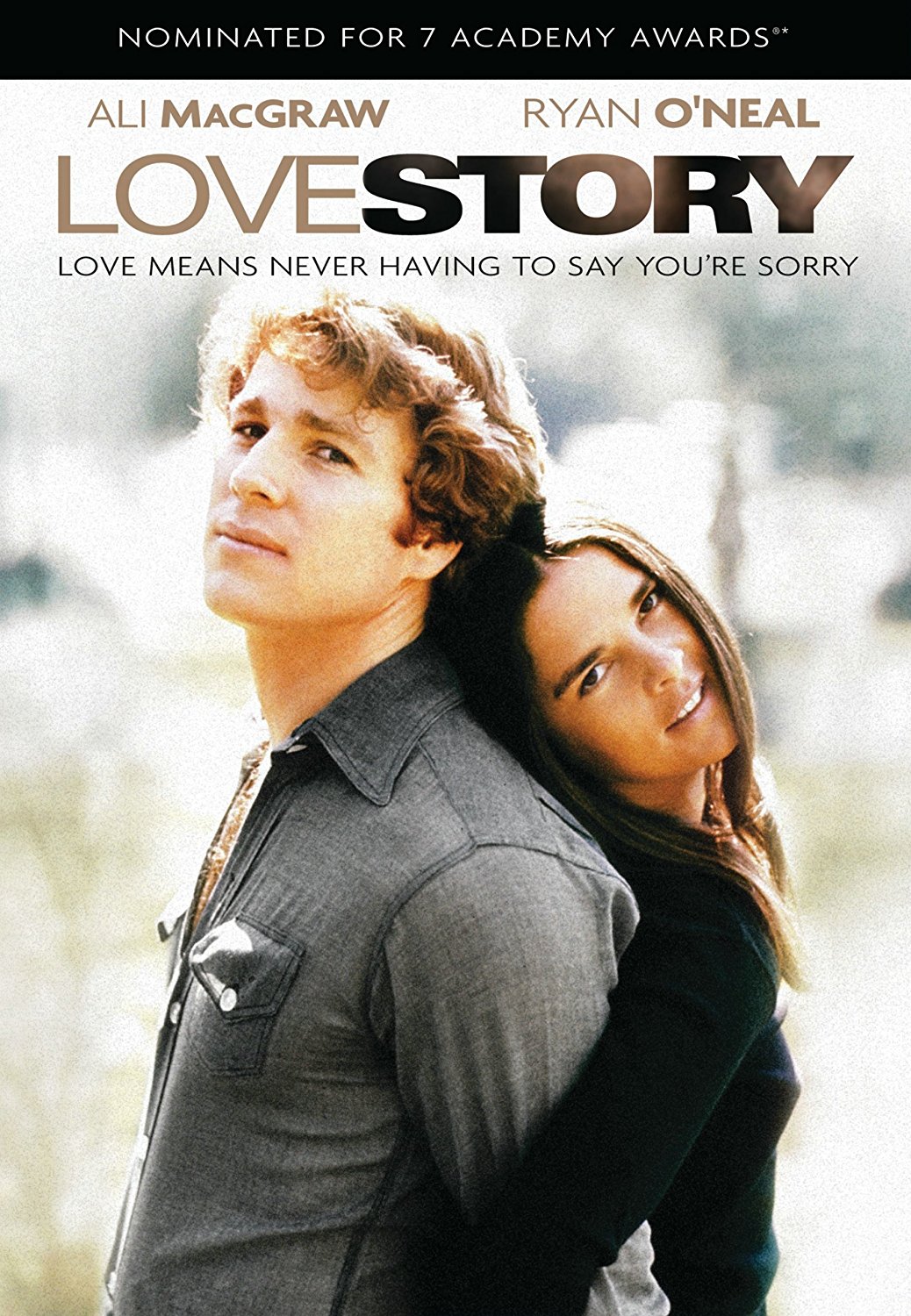
Checkpoint Two: “Love Story” Revisited
The course of true love never did run smooth.
- William Shakespeare
Introduction to Love
Everyday, everywhere, I’ve heard the expression that all the world needs is love.
I know about the black on black crime, about the mental and spiritual genocide, and about the desecration of black women.
The problem with this statement is that it’s an assumption, and we all know what an assumption does - it makes an. . .
Why say the world needs love, I ask you, who said it left?
It permeates every fiber of our human existence, but some refuse to listen to its call.
And in that refusal, we hear the same story repeated over and over.
We hear Community Watch Coordinators murdering innocent teenagers and the Nation debates about it, marches about it, and massages the court system about it.
What does it mean?
It means the problem does not involve love, but responsibility.
Responsibility is a much needed and often obscured virtue in today’s violent and ever changing world.
Many people have decreed themselves as gods, defined righteousness, and established their responsibilities by their world view.
Others have twisted the scriptures to support their individual and/or group beliefs. Underlying these actions lies the answer to the question of love’s existence and its necessity in our world.
The answer, again, isn’t love.
The answer is simple.
Values.
The concept of values is simple - one acts wholeheartedly toward that which is esteemed of worth.
Therefore, if a gang member values loyalty to the gang, then it is only logical that whoever or whatever threatens that loyalty or the gang, the gang member must retaliate in the most accessible means, and that means is ALWAYS violence.
We call the gang member evil and immoral, but we judge that person by our beliefs and what we value.
We seek a better world by judging others, but we must first understand their system of values.
When we know what others value, it is easy to communicate and establish a bond of rapport.
I know, it’s hard.
I know it won’t be easy, but we must work on people’s values if we are to cause a change.
When those values are changed, then people will act accordingly with those values because love never left the world.
It hides behind negative values.
What love is greater than one that defies death?
Who is willing to sacrifice themselves for their true love?
Who is willing to love so passionately that every moment is an eternity and the elixir of death cannot poison that passion?
From where does love of such deep intimacy and affection sprout like some divine root from the Garden of Eden?
These are the questions that humanity has asked for eons and the answer has always been the same - love in its truest and divine form.
It has been called “true love,” it has been called “meant to be,” it has been called “love at first sight,” and it has a continuing identity - passion and identity for another that elevates the humanness in us.
The love story in this film is tragic, but this love transcends class.
This is true love.
Love and sacrifice are fused into one theme because they are two parts on one side of a coin.
When a person truly loves another, he/she must be willing to allow that person his or her freedom and in this sacrifice we find the truth of ourselves.
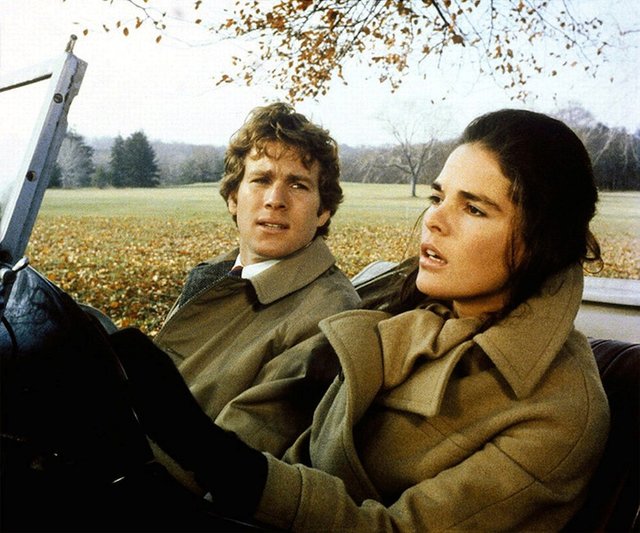
Symbolism of the movie Love Story
Love Story mirrors the Titanic in its depictions of class and rebellion.
Oliver finds the truth of himself by loving Jenny in Love Story.
Rose finds the truth of herself by loving Jack and we can find the truth of the Titanic mirrored in Love Story.
The Titanic has the same structure (told in a flashback) as Love Story.
Jack represents rebellion (against class) and Jenny represents rebellion (against religion and tradition).
Jack is rebellious because he is a free spirit in a world where conformity is the majority.
Jenny’s rebellion is represented by her wit, her free-spirited manner, and by leaving the church.
Oliver represents rebellion (against his father, whom symbolizes tradition and the higher class) and Rose represents rebellion (against Ruth and Cal, whom represent tradition and the higher class).
Oliver’s rebellion is expressed in his denouncement of his father, his hatred of his father, and his aspirations to play hockey.
Oliver’s father wishes he would stop playing hockey and focus on going to law school.
In this context, law school becomes a symbol of tradition and expectation (we’ll discuss the inherent evil nature of expectation shortly).
Rose’s rebellion is expressed in her suicide attempt and her love for Jack.
For example, Rose wants to learn how to spit “like a man” (symbolizing the pressures of a patriarchal society) and Jack shows her how (thus, he symbolizes a further rebellion against the patriarchal society).
As a result, he shows Rose that she doesn’t have to be a man or act like one, she needs to simply be herself.
They are torn between class in Love Story, but it isn’t as prevalent as it is in the Titanic.
Oliver is rich and Jenny is poor and like the Titanic, the pressure comes and is geared more from the wealthy parents.
Jenny dies in Love Story and the Titanic is the same, in that the old Rose dies with Jack.
The new Rose becomes another being altogether, a fusion of Jack’s free spirit and Rose’s new-found hope.
However, the roles are reversed - in the Titanic, the guy (Jack) is the visionary and the girl (Rose) is the hopeful.
In Love Story, the girl (Jenny) is the visionary and the guy (Oliver) is the hopeful.
What is the connection?
The poor person is the visionary and the rich person is the hopeful.
Under this construction, this insinuates that by being poor, one builds wealth within and by being prosperous, one builds wealth without.
With Jack and Rose being opposites, they somehow soothe each other’s weaknesses and as a result, make an impeccable match.
In the words of Robin Williams from Good Will Hunting, “it doesn’t matter if you’re perfect or if she’s perfect, all that matters is if you’re perfect for each other.”
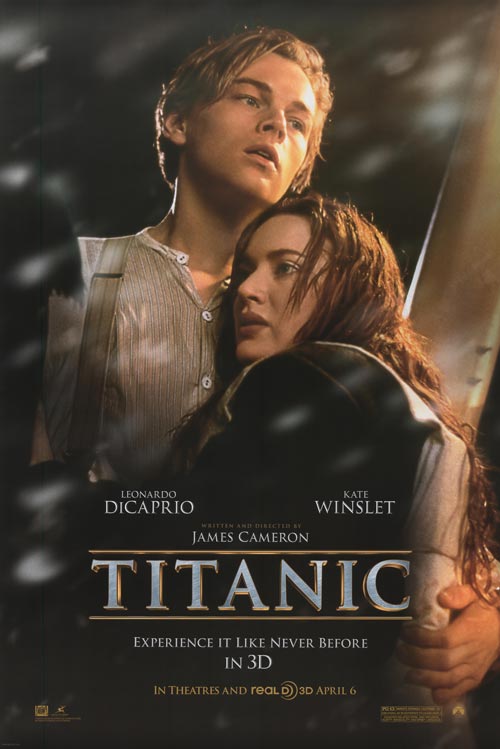
Love Story of the Titanic
The love story of the Titanic exists on three levels (personal, social, and mental). In the personal love story, Jack gives Rose what she needs, someone there for her that is truly concerned about her feelings and aspirations.
In a memorable line, she says “I feel like I’m standing in the middle of a crowded room, screaming, and no one can hear me.” She’s wrong because Jack hears her clearly and answers her call.
As Rose puts it, “you know Jack, you see people.” He sees Rose for what she is, an enslaved woman seeking freedom.
On the social level, Rose is developed within and she needs to be around people that have developed within also (symbolized by the poor people).
Jack needs an opportunity to be a part of Rose’s life and he is given that chance when he stops her from jumping off the ship.
It is graceful plotting and an understanding of character that James Cameron uses here - he uses the antagonist to invite Jack into the world of the rich, beginning the interaction between the poor and the rich.
There is great contrast in this situation because Jack (representative of the poor) is rich in spirit and poor in person, while Cal Hockley (representative of the rich) is rich in person and poor in spirit.
Because Rose is torn between the two, she represents a synthesis of the rich and poor.
On the mental level, Rose is exactly what her name implies, a beautiful flower.
However, she is withering inside and slowly dying.
Her individuality is being repressed beneath the clouds of tradition and without sunlight, a Rose dies.
Jack allows her to be herself and he clears the sky of tradition’s clouds.
When his sun rays hit Rose, she lights up and blossoms.
The only problem is that every Rose has its thorn and when the sun goes down, Jack feels the thorn.
Rose blossoms fully and comes to a crossroads - either she must go forward or return.
She cannot go back because as the saying goes “once your mind has been stretched by a new idea, it can never return to its original size.”
Rose chooses to blossom and goes on to live an incredible life, having an intimacy with Jack on the mental plane.
As she tells her story of how Jack saved her life, she doesn’t have a picture of him and there are no records of his existence.
He exists in her mind and it is from there that he holds a place in her heart.
For him who has ears, let him hear: the road to a woman’s heart is through her mind.
Both love plots are similar and may give reason to believe the Titanic may have even modeled its love story from Love Story.
Both plots are tragic, but it is the deaths of Jenny and Jack that illuminate the lives of Oliver and Rose.
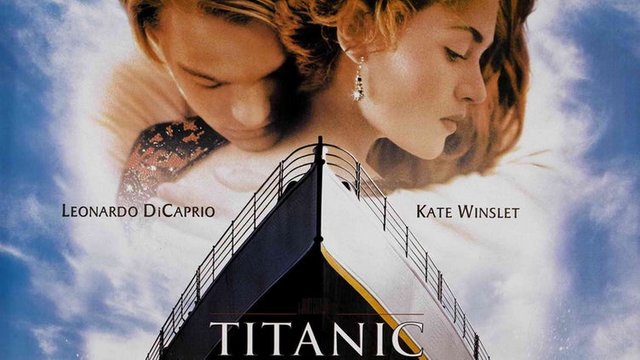
Symbolism of the RMS Titanic
The Titanic represents the finest thing about our time period - there’s nothing new under the sun, so why try to be original?
Therefore, we must take the best of what’s come before us and utilize the most powerful technique in use today - synthesis.
With enough models before it, the Titanic (movie, not the ship) has become the standard of measurement for greatness.
The Titanic is a great film, not because of the love story or the story of its tragedy, but because of the thematic messages it purports.
Of course it can be interpreted in several ways, but isn’t it time we begin looking at things positively?
When we view a film that isn’t good, we should imagine what the creators of the film were trying to express.
Was there a universal principle that drove them to create the film?
Was it their intent to uplift humanity or illuminate our humanness?
We don’t have to like the film.
My fellow passengers, we must move forward, get past the pain.
What if we’re just warning our friends, family, etc. about the film?
This is a good cause, but doesn’t it bring about that most hated of words, expectation?
Expectation can be a bad thing when we look at the problems that it causes.

Symbolism of Sex
Let’s look at sex.
It is only when we expect things that problems and/or conflicts arise.
For instance, when a man expects to have sex with a woman he’s just met and it doesn’t happen, what does he do?
If he’s an easygoing, wise, and experienced guy, he realizes the fault of his expectation and lives life as it comes (like Jack Dawson).
If he is focused on his goal, then he seeks to control her (like Cal) or he begins to find outlandish faults in the woman as if they had been hidden behind her female intuition.
His thoughts run wild:
She’s not the one for me.
We’re on two different wavelengths and we’re going in opposite directions.
There are many more fish in the sea (I think every man has said this several times in his life and if one tells you differently, he’s not only unfair, he’s a liar).
This is what happens when we expect things and/or certain circumstances.
This is the underlying beauty and power of Jack Dawson’s character.
We look at the Titanic and scream - why did he have to die?
It is his conscious decision because he has truly lived.
He does not expect to find true love, therefore death holds no power over him. Many of us fear death because we know the truth.
We haven’t truly lived.
Jack doesn’t expect anything and when he falls in love with Rose, he doesn’t expect her to love him back, but she does.
All he wants to know is that she’s going to be all right because true love exists from without to within.
For example, if two people are divided by a fence, both must run to the fence to love each other - two hearts are better than one.
In our lives, we’re going to encounter times when it doesn’t work like that. When we love someone, we’re upset when they don’t love us back, but that’s not true love.
Why should we expect for someone to love us back?
Most of our education is given to us as children.
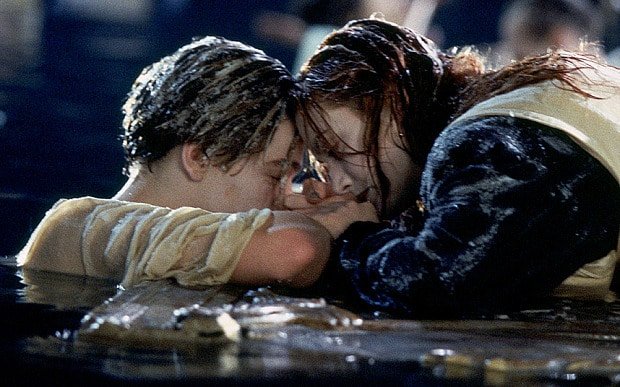
Unconditional Love and Sacrifice
Does the phrase “it’s better to give than to receive” mean anything to you?
Jack loves Rose unconditionally (as it has been aptly called) and he is truly happy.
Therefore, when he dies, some of us leave the theater wondering why did he die?
Why didn’t he just find another piece of floating debris?
Why didn’t he swim over to the life boats, that is, if he is as good a swimmer as he says he is?
Why doesn’t he, you ask?
Why did Malcolm X deliver his last speech without guards knowing his life was in danger?
It is the same reason that Dr. Martin Luther King Jr. spoke about “going to the mountain top and his dream.”
Again, you may ask me, why?
It is because THEY KNEW.
When Jack tries to climb onto the piece of debris and it cannot float with them on top, he knows the outcome, but doesn’t tell Rose.
Some call this fate, some call it human intuition, and others argue it is pre-destined.
But what no one mentions is that Trayvon was going home, not harming anyone, and Fate found its fury unleashed from a Community Watch Coordinator.
And his reason, you know what, forget his reason. . .
Let’s get back to the Story before we get off course on our Voyage of Discovery.
Jack knows he’s going to die and he does the greatest thing that one person can do for another, he sacrifices his life to save Rose.
This is what life is all about.
SERVING others.
Not SHOOTING them!

Salvation beyond the Call of Duty
Two thousand years ago, a man’s love for humankind was so powerful that mortality held no place for him.
He went beyond the call of duty -- he not only sacrificed himself for his fellow man, he sacrificed himself for all of humanity, and that’s why we call him the “Savior.”
How does this tie-in with the Titanic?
Jack’s sacrifice for Rose exists on three levels (individual, social, and Nature/Cosmic) and it symbolizes the struggle of the human species.
We must sacrifice the bad part of ourselves (sin) for the advancement of humanity.
Then, we must sacrifice ourselves for social reasons (our children, our race, our culture, our land, our spiritual beliefs and our ideas) for the advancement of humanity.
After that, we (in regards to humanity) must sacrifice ourselves for the advancement of life itself, be it human, animal, insect, bird, or amphibian.
It is when we live according to the circle of life that life continues to exist harmoniously under one divine creator.
This, my fellow passengers, is the purpose of love for Jack and Rose, for Black Men, for Americans, and for all of humanity.
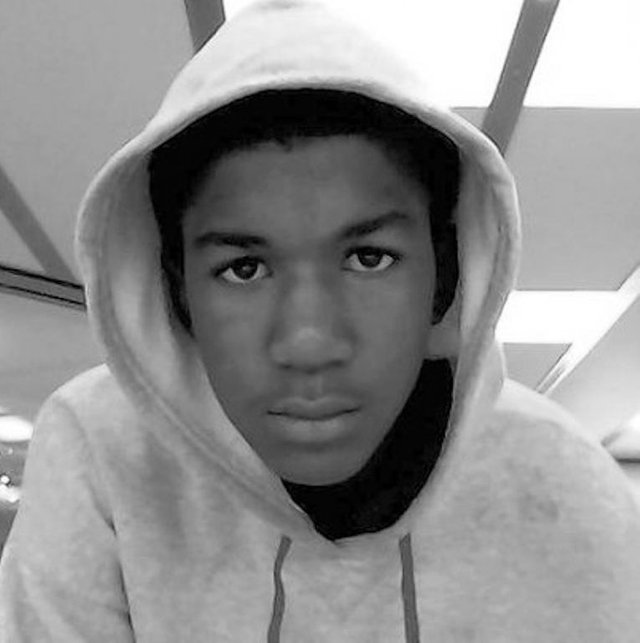
Conclusion
Passengers, if you will, look in your brochures on page 66 and you’ll find an enclosed chart that shows our voyage milestones and the ship's major functions over the course of this trip.
I recommend you read it while we take this short break before we set sail again.
We have reached the third checkpoint on our voyage to freedom.
Now, let’s go back to a horrific time in American History that produced the diabolical ideology known as Racism.
The identical ideology that has taken the life of Trayvon Martin.
The same ideology that produced America’s first series, America’s first Reality TV series, America’s first unsung Masterpieces of Investigative Journalism.
The Slave Narrative.
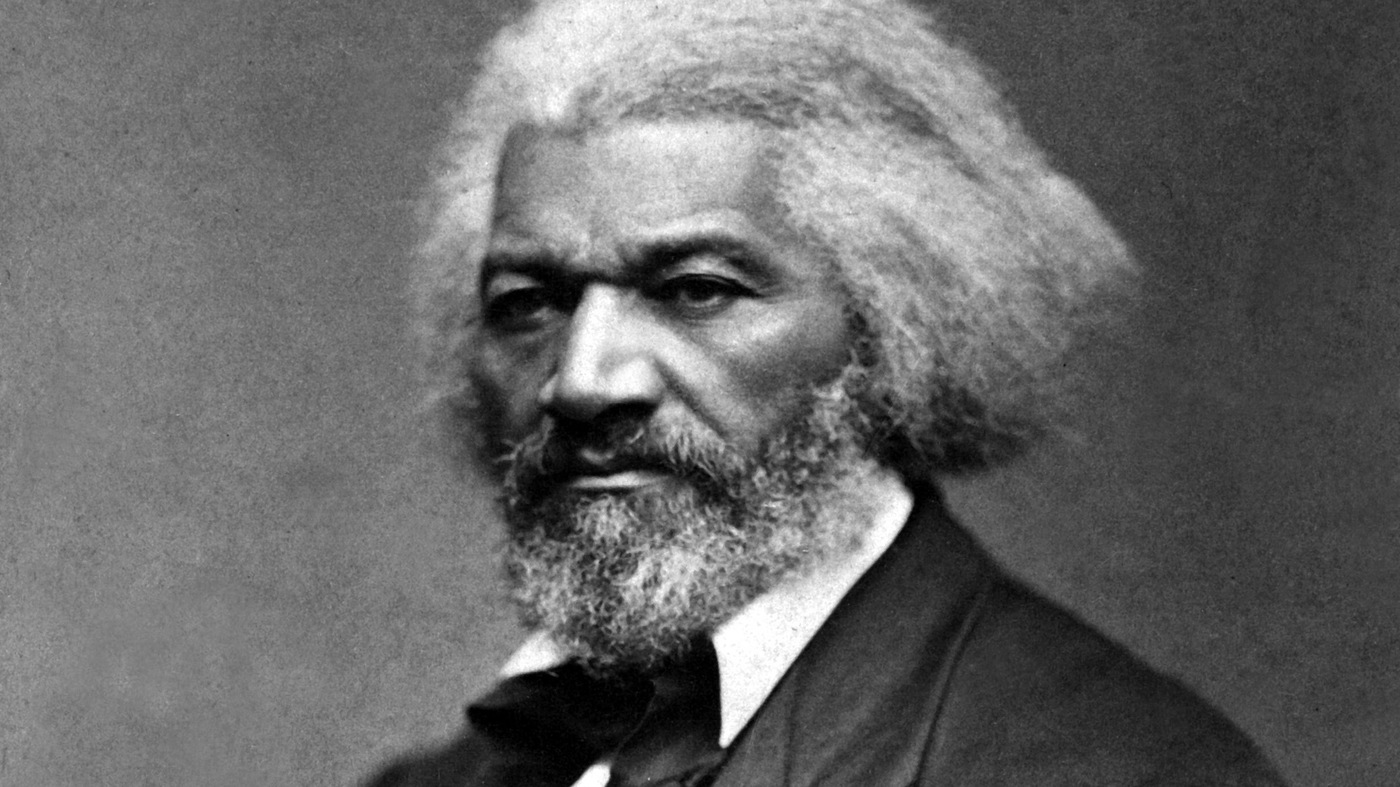
Checkpoint Three: The Slave Narrative
For my part, I should prefer Death to hopeless Bondage.
- Frederick Douglass
The Slave Narrative
Our voyage begins in American history with the advent of the Slave Narrative.
What is a Slave Narrative?
It is a Non-Fiction Narrative written by the Blacks of America that illustrates the horrors of slavery.
They are powerful tales of cultural pride, faith, and the sacrificial love associated with the intrinsic goodness within all of humanity.
They bring the horrors of slavery to life and allow us to relive those dark and morbid days of America’s past just as the film allows us to relive the tragedy of the Titanic.
More importantly, they are historical documents of our inhumanness, like the Biblical prophets and writers who were murdered by their own people.
The Slave Narrative provides us with a bridge between the past and the present and gives us an ounce of prevention from slavery recurring.
It will be a heavy task to change the condition of slavery once it has been established, which won’t be an ounce of prevention, but an ounce of cure.
My fellow passengers, let us see slavery for what it truly is -- a system of restrictions imposed upon a select group of persons or people.
Do you recall when we were children, how we hated being young because we had to go to bed early and couldn’t stay up or out late?
If we disobeyed, we were put on punishment (a further restriction).
Now, imagine if we were killed for disobeying, who was willing to take that chance? Therefore, we relate to the third class citizens aboard the Titanic.
Tighten your seat belts, my fellow passengers, we are about to sail across troubled waters.
For most of us, it will be a wondrous voyage towards a new world where everyone will "not be judged by the color of our skin, but by the content of our character."
Before embarking on our journey, we need a little history, just in case we repeat it.
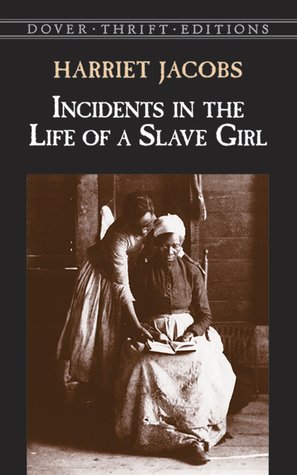
History of the Slave Narrative
Historically, the two most powerful slave narratives are The Narrative of the Life of Frederick Douglass: An American Slave (written by Frederick Douglass) and Incidents in the Life of a Slave Girl (written by Harriet Jacobs). Douglass’ Narrative had immediate success when it was published in Boston in 1845.
It recounts the author’s years in captivity and his escape. In truth, it represents perhaps the fullest expression of the Slave Narrative.
Jacob’s Narrative was published in 1861.
It is an account of the horrid life and escape of Linda Brent (a pseudonym for Jacobs).
It has an immensely powerful maternal atmosphere.
It also details the harsh conditions of the female slave (what else is Rose?) and it portrays the family bond during three generations.
As a result, it rivals any accounts of those written by the prominent men of her age. With that behind us, let’s sail.
The film has three symbols of slavery (the water, the unsinkable ship, and the iceberg) that drive home the point - the film isn’t inherently about the Titanic or the love story because the plot and theme delve into deeper depths of the human psyche and condition of being.
The film is about and built on the premise of slavery, freedom.
Why did my ancestors fight and die so valiantly to abolish slavery?
It wasn’t to keep their identities.
It wasn’t to keep their African rituals and their way of living.
It wasn’t even to keep our African spirituality.
It was for an important theme stated by Patrick Henry - I know not what course others take, but as for me, give me liberty, or give me death.
My ancestors fought for freedom and every culture, race, religion, and ethnic group can relate to this theme.
The Jews fought for their freedom. William Wallace fought for the freedom of Scotland.
America fought for its freedom from England.
Galileo and Einstein fought for the freedom of new and improved ideas.
Women still fight today for their freedom from sexism. The poor fight for their economic freedom.
The film expresses all these facets of freedom because there is one common factor in the fight for freedom - the abolishment of slavery.
Slavery comes in several forms (economic, social, racial, religious, material, physical, spiritual, mental, and etc.) and it’s
expressed throughout the film.
The enslavement permeates in the characters, in their lives, and in the film’s purpose - is the Titanic a tragedy about the ship or about the inhumanness of humans?
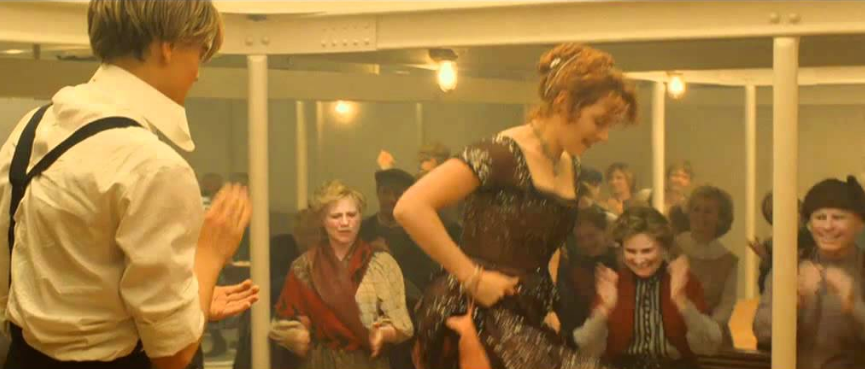
Slavery on The Titanic
The film’s slavery exists on three different levels (social, cultural, and personal).
From the social perspective, prestige, power, and money enslave the rich.
From the cultural perspective (regarding class), the rich enslave the poor.
From the personal perspective, peer pressure from Rose’s fiancee (Cal Hockley) enslaves Rose’s mother (Ruth DeWitt Bukater) and she in turn enslaves Rose.
It seems everyone is controlled by this triple enslavement, everyone except Jack.
Jack Dawson is a free spirit and lives his life moment by moment and not by social or cultural factors.
This freedom cannot be attributed to his class because his friend tells him in the beginning of the film that “he would never be able to get Rose.”
Somehow, Jack triumphs in seeking the love of Rose.
Is it his vision or attention to detail that Rose DeWitt Bukater loves or is it his heroic stature?
Without question, Jack Dawson is a hero.
He supersedes the environments of class and culture and he rises above the unwritten laws of upward mobility by interacting with the rich.
Rose falls in love with Jack because it is his “free spirit” that attracts her “enslaved spirit.”
Therefore, Jack becomes a symbol of hope for Rose from the bitter shackles of Ruth and Cal that rot her soul.
Harriet Jacobs says it best: I would ten thousand times rather that my children should be the half-starved paupers of Ireland than to be the most pampered among the slaves of America.
I would rather drudge out my life on a cotton plantation, till the grave opened to give me rest than to live with an unprincipled master and a jealous mistress.
Jack’s assurance that he will save her establishes him in a dual position -- his position as her freedom and his position as the symbol for freedom.
As her freedom, he gives her new life and she changes her vision from despair to hope.
As the symbol for freedom, he shows that to save another, one must be willing to sacrifice oneself just as our African ancestors sacrificed themselves to ensure our freedom here in America.
When Jack tries to convince Rose that she will not jump, he undresses to prepare for the jump.
It is his undressing that symbolizes his freedom from the constraints of society and emphasizes his freedom of spirit, all the traits that Rose lacks.
When Cal arrives, Jack is accused of trying to rape Rose.
Then, Cal tells his guard to give Jack some money and the guard assures Cal that it will not look good for his image.
Therefore, he invites Jack to dinner with the rich and this is the beginning of the destruction of the barriers that separate Jack and Rose and those that separate the rich from the poor.
It is also the beginning of Rose’s separation from slavery and the abolishing of her enslavement.
Jack symbolizes the incessant and inherent need to be free from restraint and/ restriction.
Like the central figure of the Slave Narrative, he represents himself and the rest of his enslaved brethren.
Rose symbolizes our traditional need for conformity and social adaptation.
The ship enslaves those aboard because it is their way of life, their conception of life, and how life should be.
They paint a picture of their realities and fantasies, ingrained within the classes, and develop their dark utopian society aboard the ship.
It’s no wonder the ship sinks, it’s not strong enough to support the weight of such social and personal evils.
The ship symbolizes our enslavement to the grandiose idea that the ship is unsinkable and somewhat eternal.
The forms of slavery that the ship symbolizes are social (conforming to old ideas, ways, customs, and tradition), mental (ideology, religion, world view, and dependence), spiritual (morality, faith, and knowledge), and emotional (dependence, bondage of thought, and weakness).
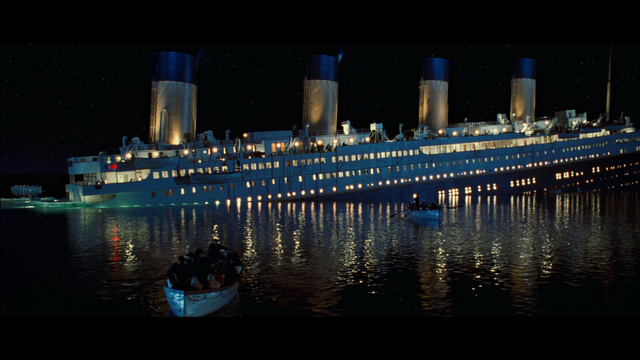
Water as Symbol
The ship symbolizes the old ways of thinking and when it sinks, those customs sink along with it, leaving the new customs to replace them after they are immersed by another symbol, the water.
The water is a constant reminder of the dual power of nature, to nurture life and death.
Water is the essence of life and its refreshing qualities replenish us, strengthen us, and cleanse us.
On the other hand, it becomes an unbearable force of Mother Nature that destroys humankind by floods, storms, and other natural disasters.
As the Titanic sails to its destination, the water goes unnoticed.
It is only until Rose decides to jump that we realize the destructive powers of the ocean - how easy it consumes the lives of humankind.
Why does Rose want to jump over the side of the ship?
The hold of slavery wore down her soul far too long and she seeks freedom.
She even says, “they called the Titanic the ship of dreams. To me, it was a slave ship.”
What else does the water symbolize?
Does it symbolize the dual nature of God, both healer and destroyer, or does it focus on the dual nature of Humankind?
What are we to conclude from watching the Titanic?
Are we to overlook water and say that we’re being too technical and looking for things that aren’t there.
I say to you, my fellow voyagers, the water beneath the Titanic is not a shallow simile, but a deeply-rooted metaphor for us.
Finally, the water symbolizes the course of humanity throughout history and throughout time.
My fellow passengers, we must not take the day for granted because the NIGHT is surely coming.
Whether the night is Death or a Community Watch Coordinator’s weapon, the night comes swift.
Let others debate what this means, back to the film.
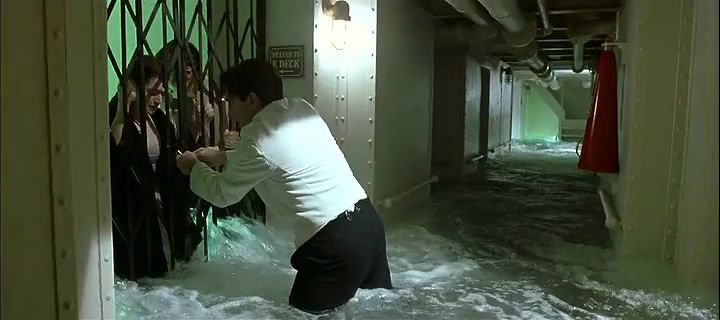
The Slavery Establishment
The film shows how the establishment of slavery indirectly sentences an entire race of people to death, be it spiritual, social, moral, emotional, physical, mental, or conceptually.
The poor people’s deaths, a result of being enslaved, symbolizes our plight.
Therefore, the entire Titanic tragedy is a correlative symbol to the enslavement of Black People.
The last symbol, the iceberg, is expressed in this context for full meaning.
The film is about an unsinkable ship that is on its way to America.
I know, I know, Black people have a problem with ships coming to America, but that’s why the film enriches the understanding of the Black experience.
The ship represents the best of human technology and yet, it is destroyed by a slight brush with Nature (the iceberg). The passengers on board are not concerned because they are certain the ship is unsinkable.
The assumption is so powerful that the ship is not prepared in case of an emergency and this ultimately proves the most enslaving element of all, death from negligence.
Enslavement is evident in the social values of the people because even in the midst of great tragedy and death, these social values stick as strong as human memories.
The rich take care of themselves, lock the poor downstairs, and ensure their survival.
The captain and those in charge symbolize the slave masters plotting their courses for a smooth transition.
They are so excited to show off and get to America that they increase their speed.
Jack symbolizes our inner strength and Rose symbolize our willingness to conformity.
When these two finally meet and fell in love (symbolic of their becoming one), the white patriarchy is upset because it is trying to make them conform to their ways and forget their inner strength.
Now, we can understand why the love affair is so dangerous to the established structure of white patriarchy.
When the white patriarchy sees that they can no longer stop the love affair, it does its favorite trick - destroying the bond that ties them with each other, their honesty and trust.
To ensure its success, it sets up Jack and sentences him to death.
What does Mother Nature think about this?
It intercedes because the white patriarchy is so confident that nothing can go wrong with enslaving those on board.
She comes in the night as an iceberg and ends this modern-day Gomorrah.
The white patriarchy has planned for everything except Natural intervention and this overconfidence is their downfall, or more appropriately, their fall down into the depths.
The ship symbolizes the Black race and as it sinks, the slave masters just stand idly by, watching our destruction, just as they had done in America.
They felt no remorse for their actions and this film gives rich and racist people of today a second chance to reevaluate their actions and attitudes.
Remember, we’re living in the last days and we only have a short time here.
We can even look at how the safety boats are boarded, women and children first; this is the same agenda that was used in slavery.
What does Jack do in the face of danger?
He adapts to its conditions and saves Rose’s life.
As a result, when one of the safety boats is looking for survivors, Rose has absorbed Jack’s inner strength as her own and saves herself.
Rose (our conformity) makes it to America, lives out her dreams, and she never forgets Jack.
My fellow passengers, here is a lesson to be learned, we must remember our past and who we are!
When the past re-emerges, our knowledge of history will be the link to our past and our inner strength.
When Rose tells the story of their love, Jack (our inner strength) is again given life and his memory is passed down to the future generations so that it will not be forgotten.
We must know our history and tell the children because they are the future.
We are the last rung on the stairway to heaven - if we fail to establish our rung on the ladder, an entire generation is missing and in effect, a part of our legacy is missing.
Everything happens for a reason; yes, there is a reason that we were enslaved and brought to America.
I know you’ve heard the saying -- “anything that does not kill you, makes you stronger.”
Life goes in cycles and we are now entering a new cycle, an increasing cycle.
We have a glorious future ahead, so enough of the prejudices and divisions between ourselves!
I know race is important, I know culture is important, and I know religion is important.
But aren’t people important too?
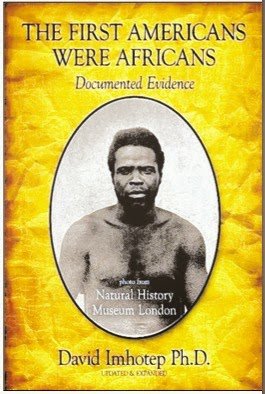
The Emigrants and Black People
My fellow passengers, we’re due west of our next checkpoint, so let’s discuss the emigrants.
The emigrants look forward to advancement, be it financial, social, or economic.
America is a chance for freedom, freedom from the strictures and regulations of class and freedom for upward mobility.
For the higher classes, they seek more distance from the lower classes.
Together, America brings opportunity in the fields of economy, finance, and business.
In contrast, the concept of America for Africans was to destroy our freedoms, opportunities, and upward mobility.
Where we were restricted, those aboard the Titanic sought expansion.
The word expansion is closely tied with size, which is a major theme in Freud’s work.
The significance of Freud’s theories lie in the contexts of social, class, and individual.
In the social context, the ship is created so large to embellish its invincibility.
In this male dominated society, it typifies Freud’s findings.
Somehow, the concept that it is unsinkable drifts into the minds of humanity as easily as being pro-black necessitates being anti-white, a costly conclusion.
The rebuilding of Black Americans is a communal effort, both black and white.
In the context of class, the concept of monetary value as length purports that the rich (having a larger amount of money) are more important than the poor.
In the context of individuals, the status or importance of a person is determined by that person’s place in society, or hence, how much power or money they have.
Being that the rich have the power on board, they are considered to be of more importance than the poor.
However, is it right to lock the poor downstairs and sentence them to die along with the Titanic in the “heart of the ocean?”
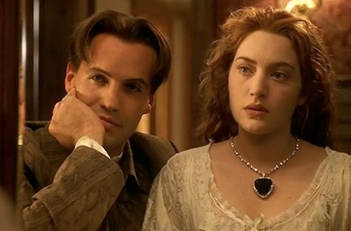
The Heart of the Ocean
The “heart of the ocean” is a form of slavery because it symbolizes humanity’s inherent need to explore our past and history.
When we are unaware of our history, we are doomed to repeat it.
In a way, our need for comparison drives us to compete when we should focus on refining ourselves by developing proficient ways of living, thinking, and coexisting with the cosmos, nature, and ourselves.
Therefore, Rose tells her story so the true story of the Titanic can be known.
When she finishes, she fulfills her role in the circle of life.
Therefore, she throws away the “heart of the ocean” because it has enslaved her, and after telling the story, she can finally join Jack.
Remember, true love conquers even death.
My fellow passengers, we have reached our final checkpoint on our voyage, Enlightenment.
Hopefully, the journey has shown you the beginning of bitterness and the insatiable stench of Slavery that fuels the Seeds of Freedom.
The same seeds that set sail across the waters and landed in the soul of Toussaint L’Ouverture and led him to establish the independence of Haiti.
From there, those same seeds fueled Gabriel Prosser, Denmark Vesey, and Nat Turner.
And now, those seeds are stirring, building energy, and pushing us to ponder.
Did we make the wrong choice?

Conclusion
From Toussaint to Trayvon, our history is soaked in blood and when we had the chance to change, we fought for Righteousness and we chose a Reverend, a King among men.
And now years later, I have to wonder, did we make the wrong choice?
When we agreed to unite, did we lose our sense of Self?
Did we severe our Souls?
Is this the right path?
I sigh and look toward the heavens, hoping Trayvon has found help, hoping Trayvon has found home, hoping we can get
past this.
Come closer.
Closer.
Now look me in my Face.
Acknowledge me.
I am Titan.
I am Titanic.
I am Toussaint.
I am Turner.
I am Trayvon.
May God Bless You From Tasting the Stench of Slavery and may the Angels walk with you.
In all ways.
And for Always.
ASHE, ASHE, ASHE.
Really good story. I look forward to reading more. Keep up the good work.
Thanks!!!!